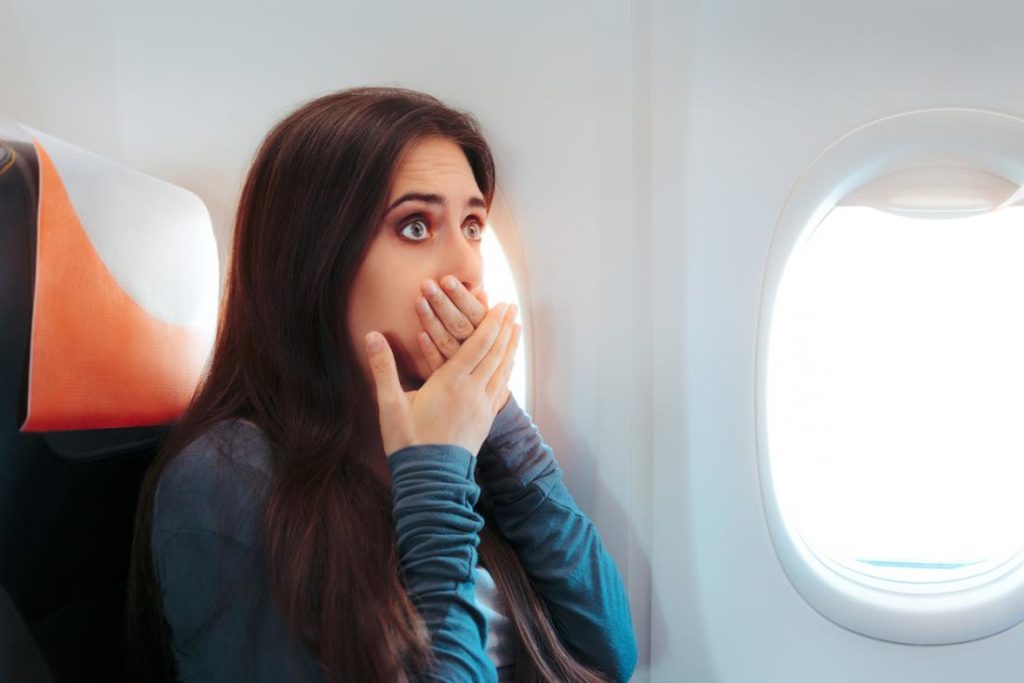
Fear of the plane: What are the causes of this phobia and how to overcome it?
The fear of the plane and of flying is a rather common phobia, widespread among the population of both sexes. Although, in fact, this means of transport is among the safest in the world (the probability of being involved in a plane crash is 1 in 45 million flights, according to the Massachusetts Institute of Technology), for many people moving in this way is cause of real panic. So let’s see how this discomfort manifests itself, what the triggering causes can be and how to intervene.
Fear of the plane: How does it manifest itself?
About 6 out of 10 people suffer from aerophobia or aviophobia, and in some cases, the fear of flying can manifest itself with so much violence as to lead the person to no longer get on a plane, with obvious repercussions on life, even work, sometimes. It is an anxiety disorder, such as panic attacks, which affects people of all ages, even those who travel by air regularly.
The symptoms of the fear of flying, which occur mainly during take-off, but which can also occur during cruising, are both somatic and psychological …
- Tachycardia and wheezing, accompanied by a feeling of lack of air;
- Excessive sweating;
- Nausea and abdominal cramps,
- Negative thoughts and catastrophic fantasies, combined with the fear of losing control.
These symptoms can usually occur even when you are thinking about traveling by plane and you start planning it, perhaps making reservations, not just at the actual time of departure. Sufferers often do not have the clear perception of a triggering event, because in fact the fear of the plane is not necessarily due to a bad experience, as even a flight during a strong turbulence can be trivially.
Aircraft headache
Another physical disorder related to flight is the so-called “airplane headache”, which occurs mainly during take-off and landing. It is a short and intense pain in the head (usually in the forehead or in the area near the ear), which appears in an isolated manner, not associated with other symptoms. According to the most widespread scientific opinions, it would be due to the fact that during some phases of flight, when the paranasal sinuses are subjected to a strong pressure variation, the mucous membranes can remain too compressed or dilate excessively, due to a dysfunction in the compensating mechanisms the pressure variation.
But how is the fear of the plane born?
The possible causes of the fear of flying
Like any anxiety disorder, the fear of flying can also come from a combination of environmental and psychological factors. The terror that can be unleashed, associated with the sensation of the inevitability of death, can arise from having lived an unpleasant experience, but it can just as easily come into existence and manifest itself in a particularly difficult moment of a person’s life, for example following the loss of a family member. Even an illness or other anxiety disorders and phobias can adversely affect and trigger aviophobia. Who suffers from vertigo, from claustrophobia, or is afraid of heights, for example, could more easily live an unpleasant situation on board an aircraft, regardless of its size and the assurances received.
It is also true that flying and being at high altitudes stimulates the brain circuits and the vestibular apparatus (which provides the brain with information on the position of the body in space and affects posture and balance) and can therefore cause nausea and dizziness.
How to fight the fear of the plane?
As with any anxiety disorder, even when you suffer from aviophobia, it may be useful to consult a specialistand start a journey to understand what causes the problem, especially if the fear of flying becomes unmanageable to the point of jeopardizing pleasure travel and business trips. The therapies generally give good results, which are however visible over medium-long times. Through relaxation techniques and anxiety management, for example, a therapist can concretely help manage and gradually overcome the fear of flight. As for the intake of tranquilizers, however, it is essential to seek the advice of a doctor.
Then there are some tips that can come in handy while you are on the plane, to alleviate the negative feelings that some experience, both physically and psychologically, and experience this moment with greater peace of mind:
- Do not take exciting substances, such as alcohol, but also tea and coffee, before and during the flight;
- Communicate to staff the fear of flying and try to chat with other passengers, to keep the mind busy;
- Listen to music or read to relax and avoid focusing on the environment you are in;
- Bring along an object that conveys positive feelings and make you feel safe at home.
Documenting on the various phases of the flight, on the operation of the planes and on the safety procedures, as well as attending specific information courses, many of which organized by the same airlines, can then be an additional aid to calm down and better face the moment of take-off and landing.
Have you ever suffered from this fear? How did you get over it?
